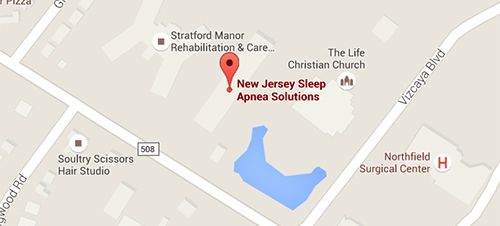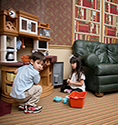How Much Should My Child Sleep?
Submitted by New Jersey Snoring Solutions on Thu 03/30/2017 - 09:00

Are you concerned that your child is not sleeping enough? Or perhaps you wonder if they’re sleeping too much. Both of these are common concerns among parents, and for good reason. A good night’s rest is essential to a child’s wellbeing and success. As a parent, it is important to understand that the amount of hours of sleep your child needs changes as they develop and grow older. In this blog post, Dr. Ivan Stein of New Jersey Sleep Apnea Solutions outlines general sleeping guidelines for babies and children.
Newborns: 10.5 to 18 hours of sleep a day
According to the National Sleep Foundation, newborns (age 0 to 3 months) should sleep anywhere from 10.5 to 18 hours a day. Between periods of sleep, your newborn should be awake for about one to three hours, during which time they should be fed, changed and nurtured. To encourage your baby to sleep more at night, try to set the right mood as evening approaches by lessening activity, noise and light around them.
Infants: nine to 12 hours of sleep a day
Research shows that the majority of infants sleep through the night by the time they are 9 months of age. Most infants sleep for about nine to 12 hours at night and nap a few times throughout the day. The quantity and length of naps should lessen as your infant reaches age 1.
Toddlers: 11 to 14 hours of sleep a day
Toddlers (age 1 to 2) should sleep about 11 to 14 hours a day. Most toddlers still require a daytime nap that can last anywhere from one to three hours. If your toddler naps, make sure that it doesn’t happen too close to bedtime, as it may disrupt their nighttime sleep. The toddler years are also the time in which many children start to show more independence. As a result, they can become a little restless or resistant when you try to make them go to sleep when they are not tired or sleepy. However, it is important to set a bedtime schedule and enforce it regularly. Practicing a consistent bedtime routine helps your child understand when it’s time to go to sleep at night. Possible bedtime routines include a bath and bedtime story.
Preschoolers: 11 to 13 hours of sleep a day
Most preschoolers ages 3 to 5 require 11 to 13 hours of sleep a day and no naps after age 5. It is during this age range that many children may have trouble falling asleep due to nightmares or other sleeping difficulties. Practicing a calming bedtime routine, like reading a story, can help put their mind at ease right before going to bed. It is also a good idea to turn off the TV and other digital devices 30 minutes prior to bedtime.
School-aged children: nine to 11 hours of sleep a day
Children ages 6 to 13 need about nine to 11 hours of sleep a day in order to succeed in school. As your children grow older, you may begin to see an uptick in homework, social life and extracurricular activities such as sports. It is important to set a regular afterschool schedule, including time allotted for homework with zero distractions and a strict bedtime hour. Limit caffeine, TV and video games in the hours before your child goes to bed as these items are associated with sleep restlessness.
Is your child sleeping the proper amount of hours but still struggling to get a good night’s rest? They may suffer from an underlying sleep disorder such as sleep apnea. Although most common among adults, sleep apnea does affect many children’s ability to sleep. To learn more about sleep apnea, including treatment options, please schedule a consultation with Dr. Stein. Call New Jersey Sleep Apnea Solutions at (855) WHY-SNORE or (855) 949-7667.







